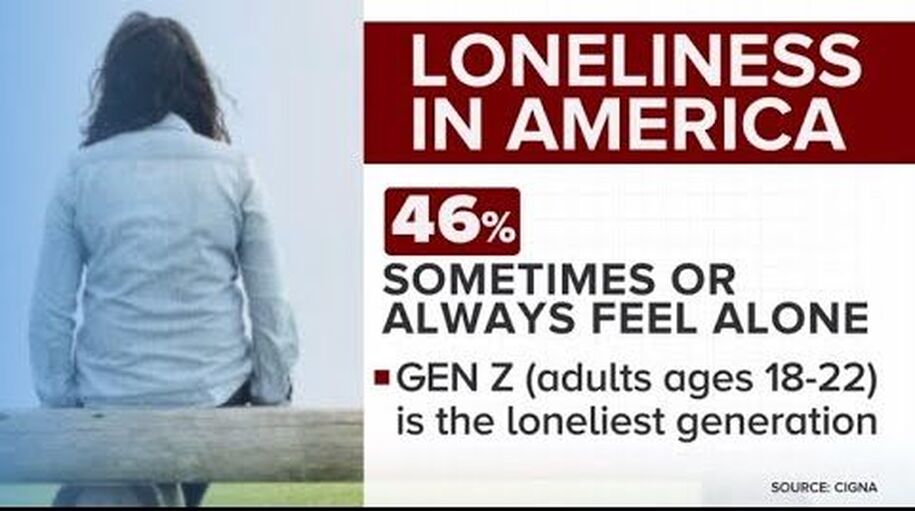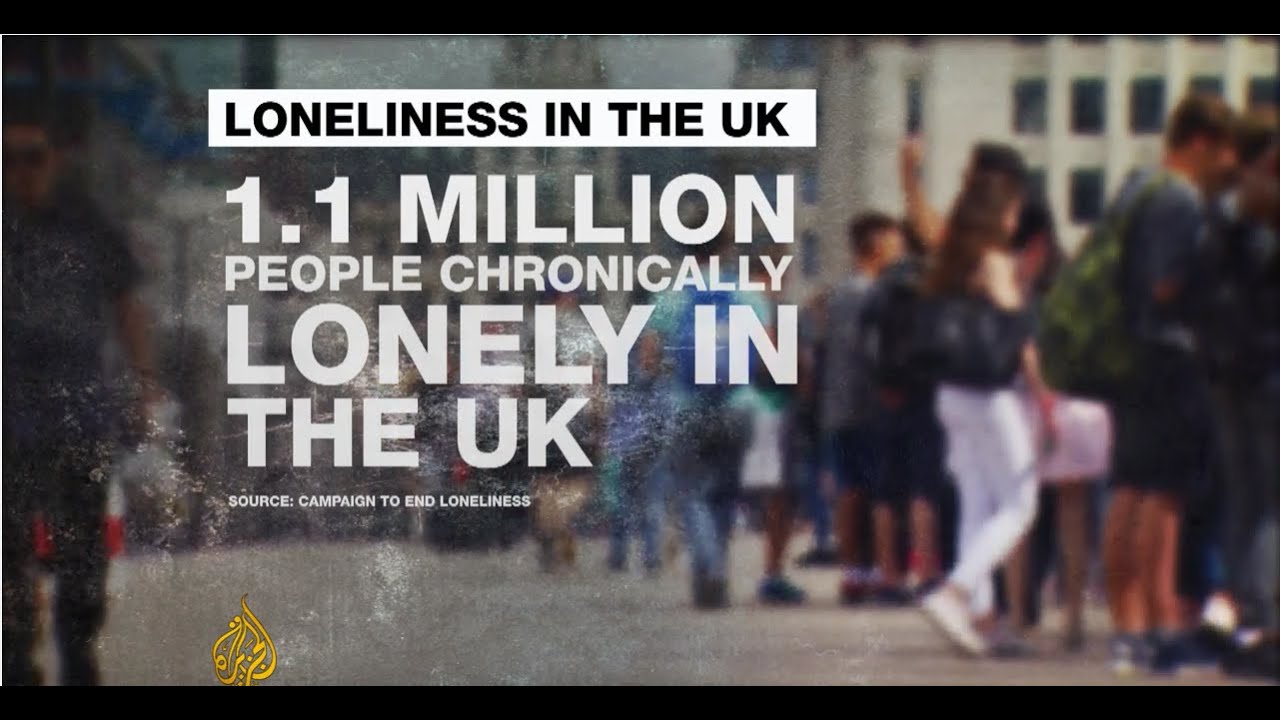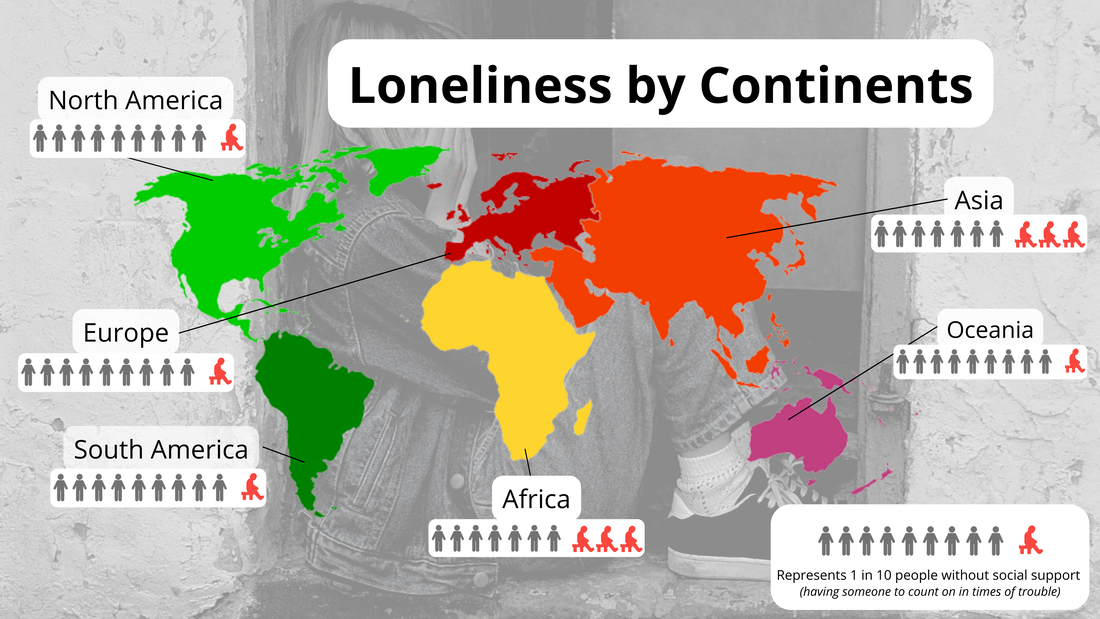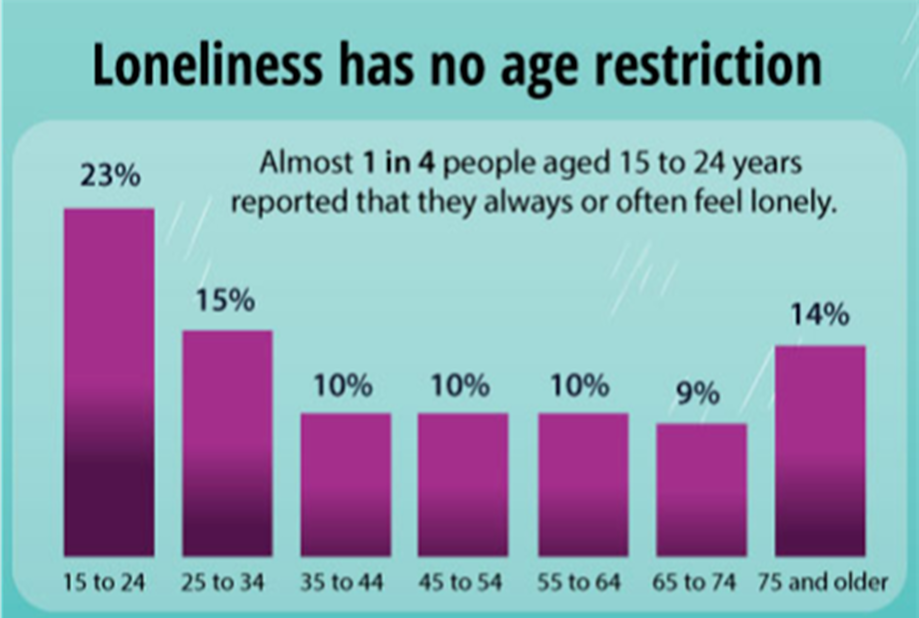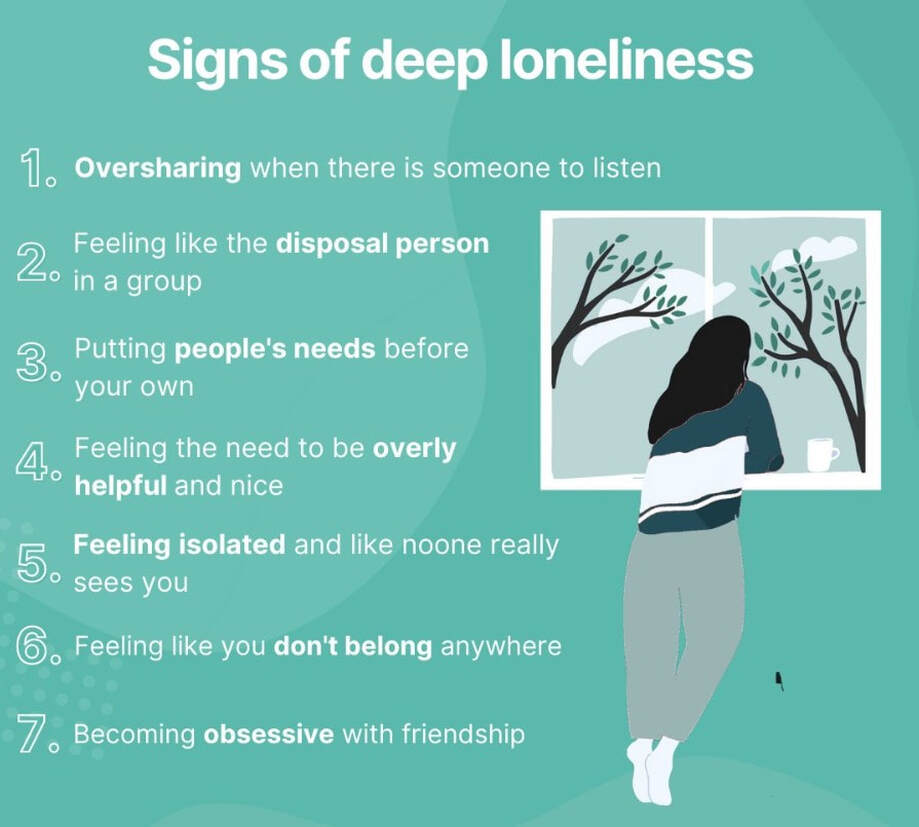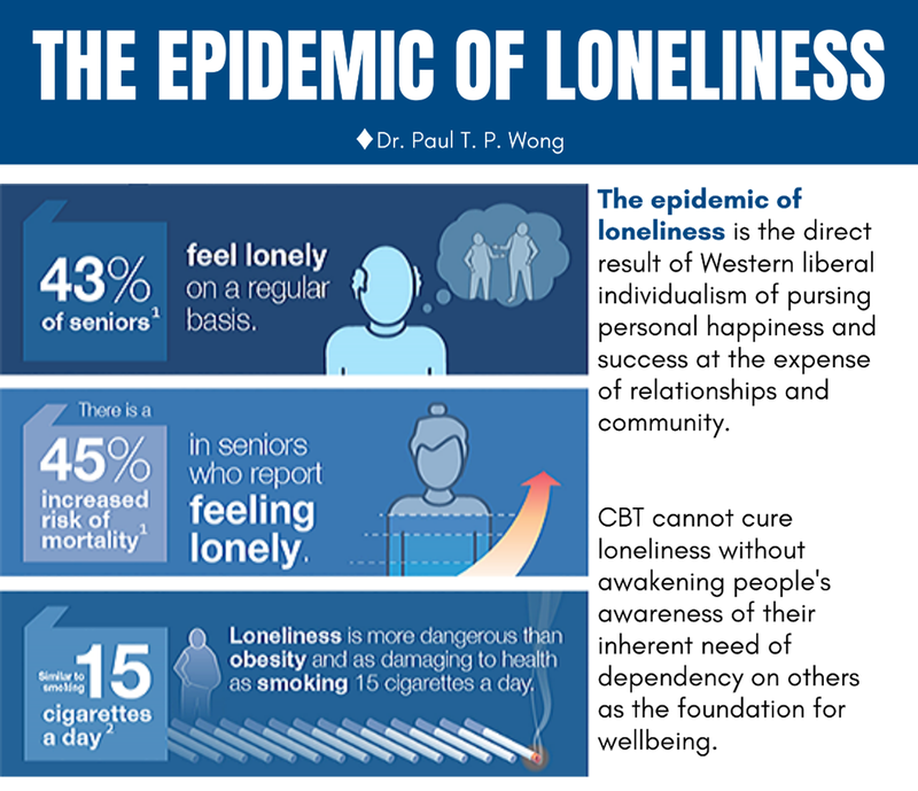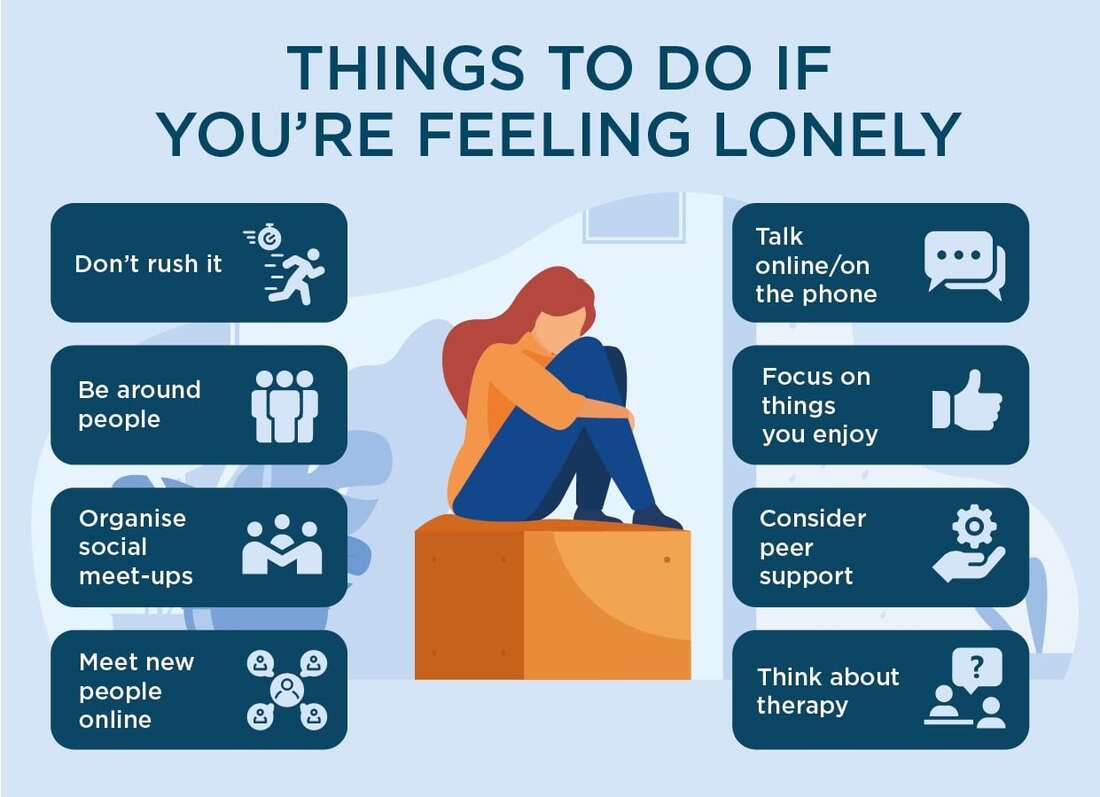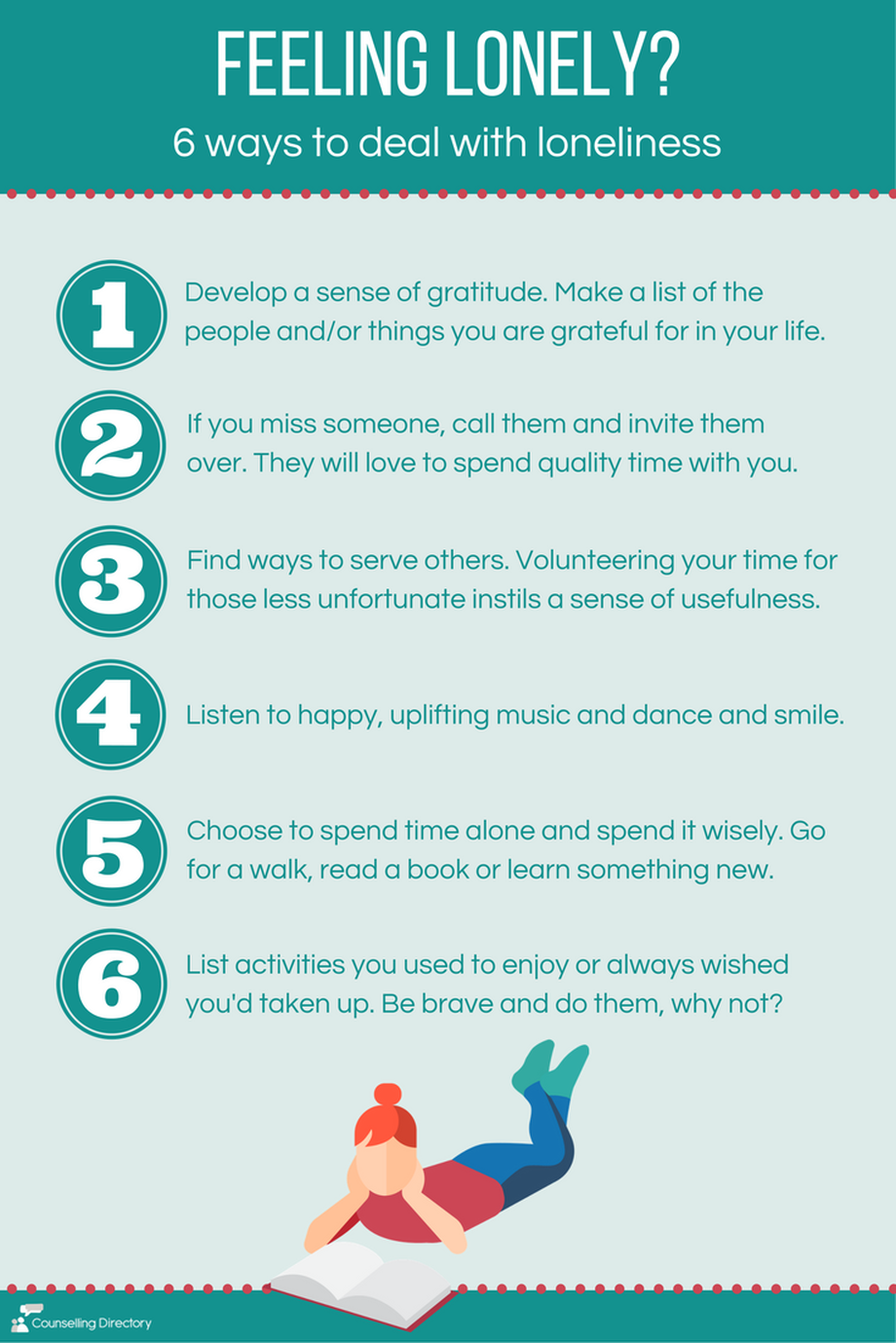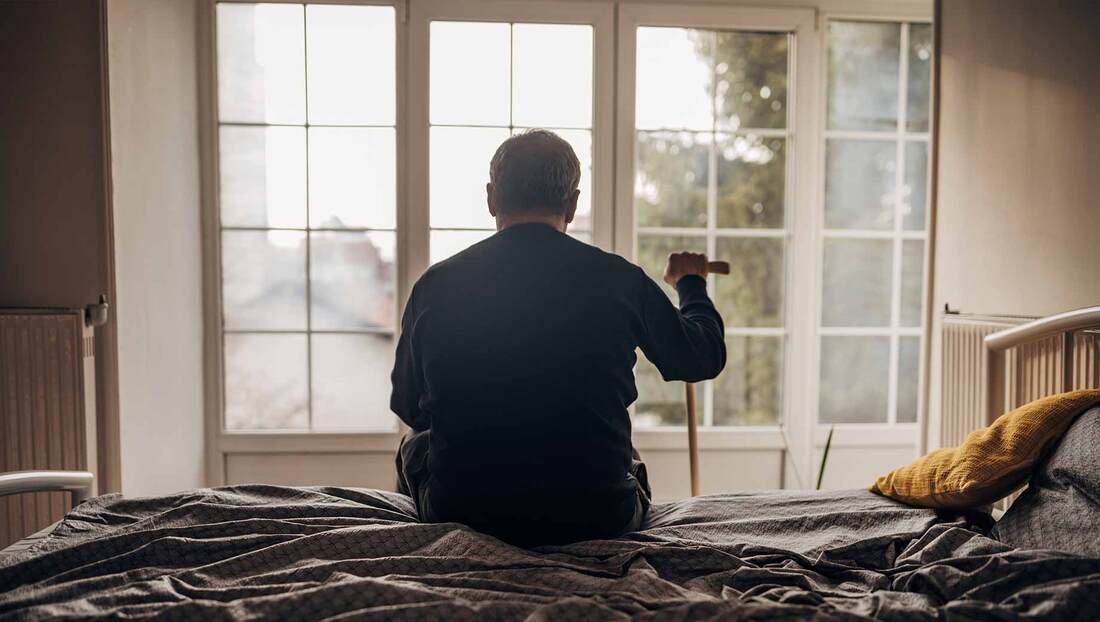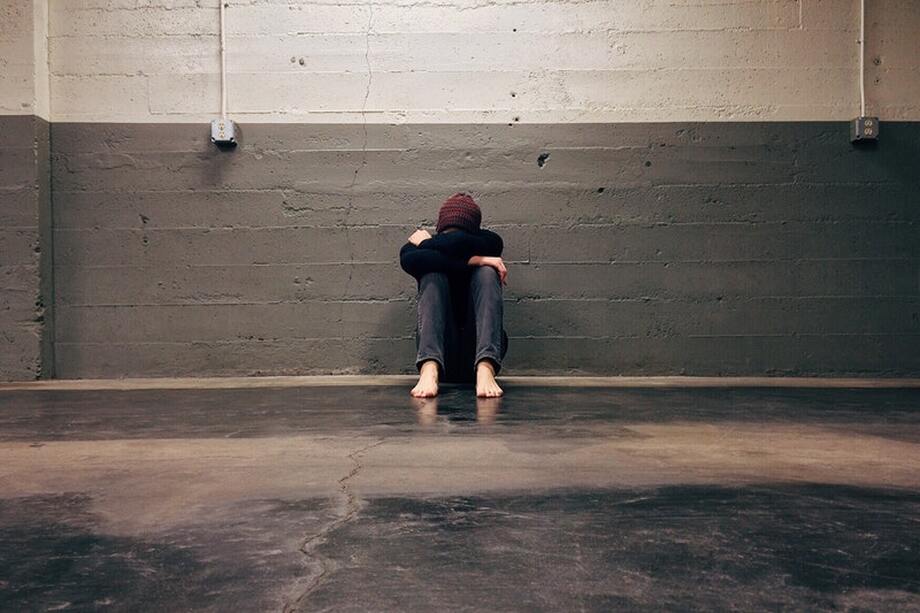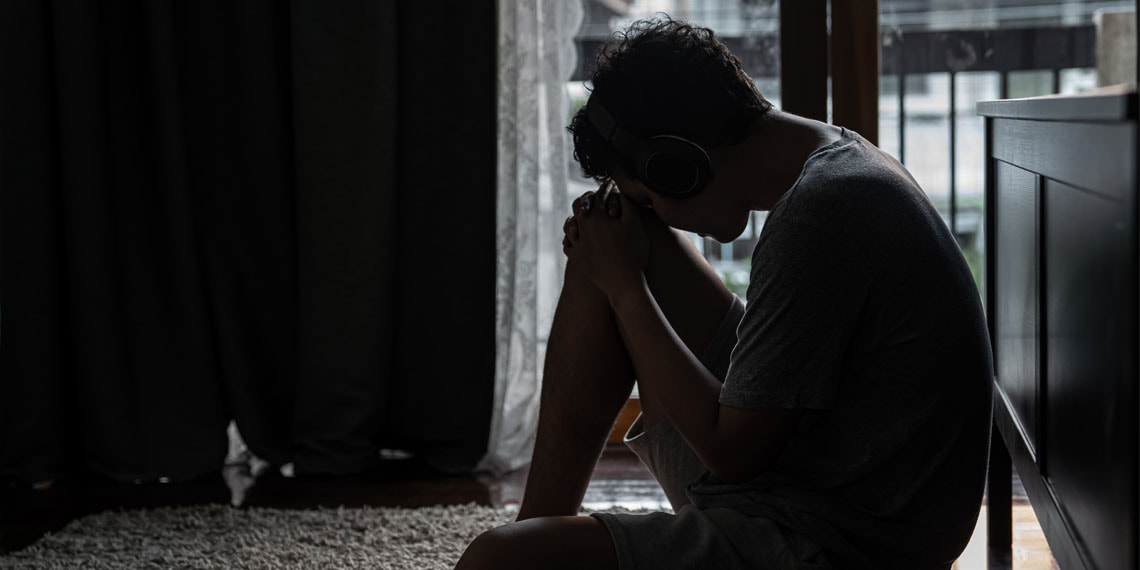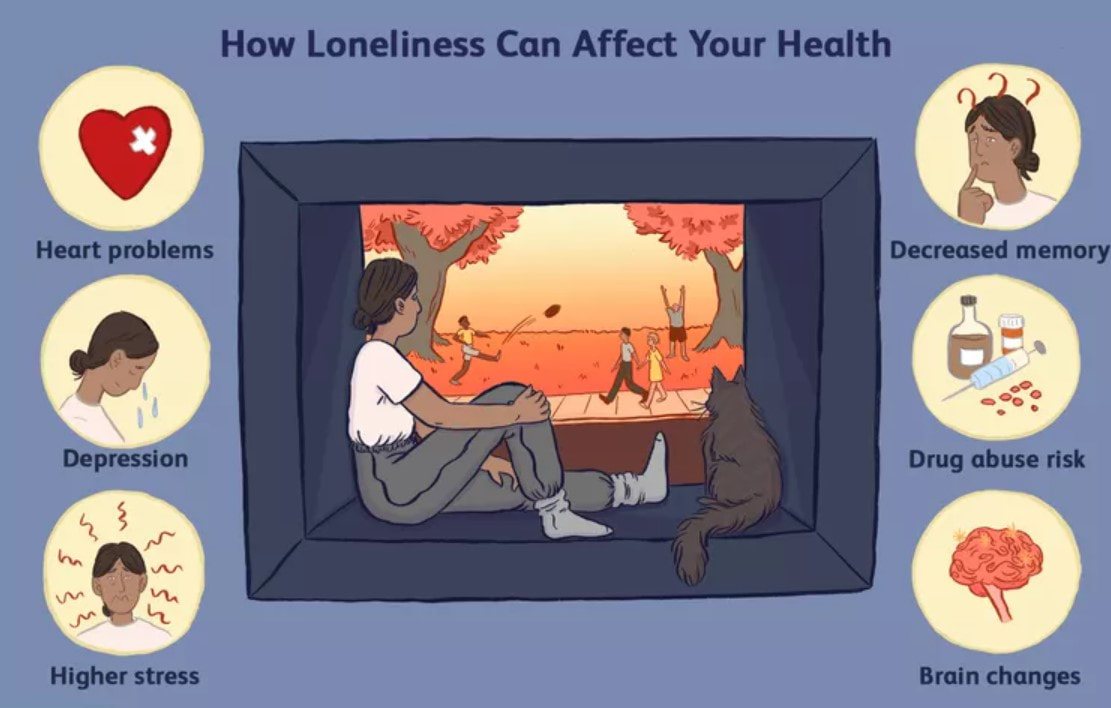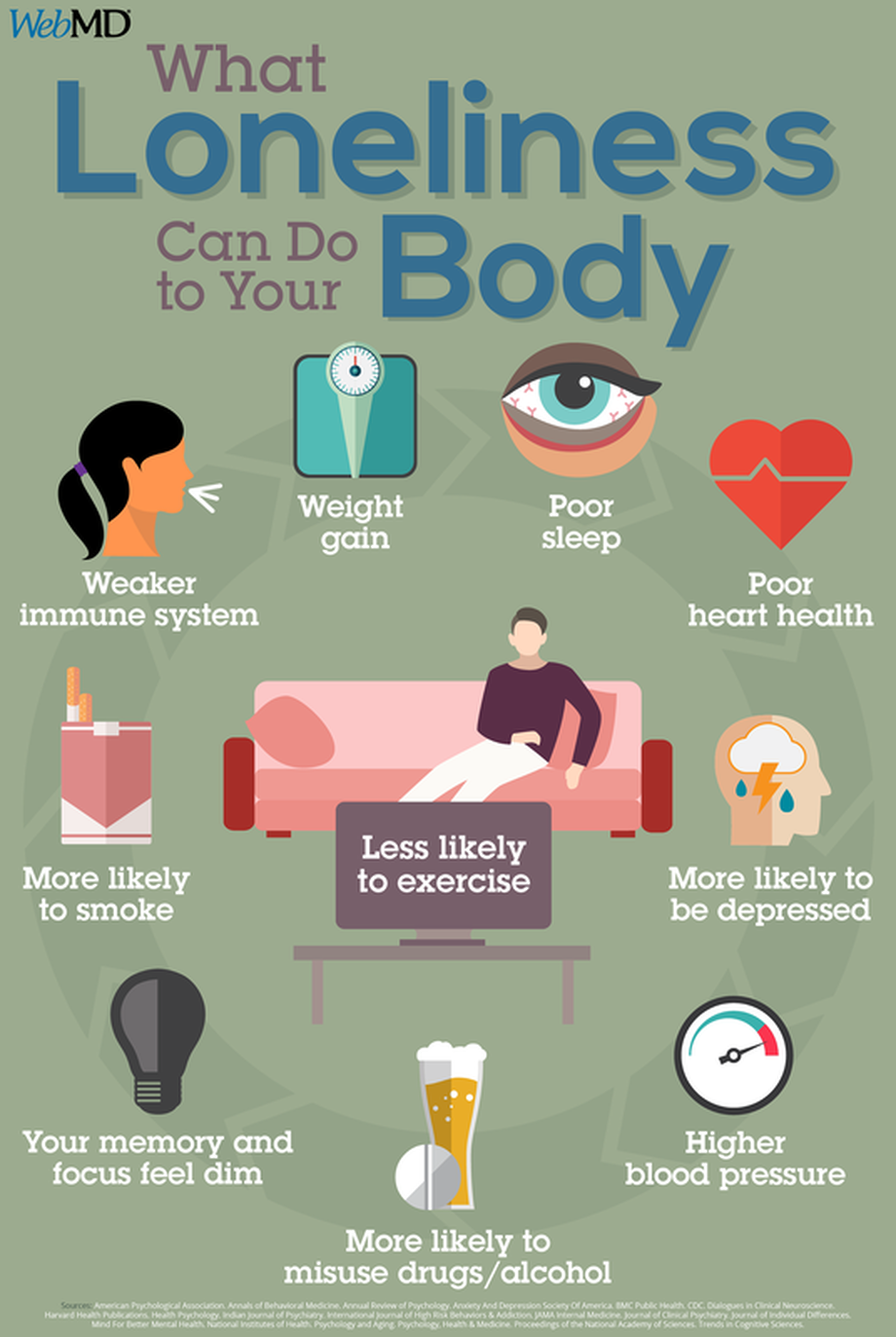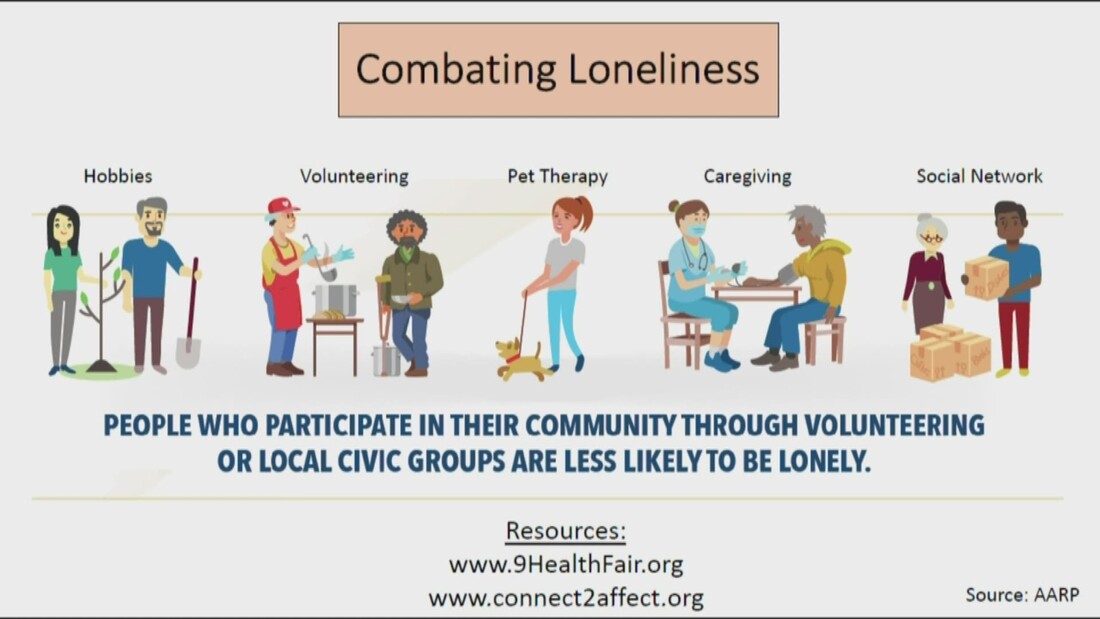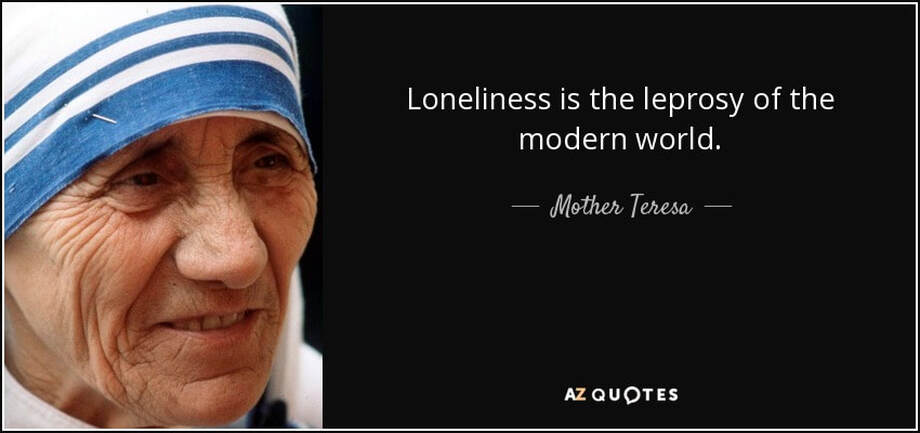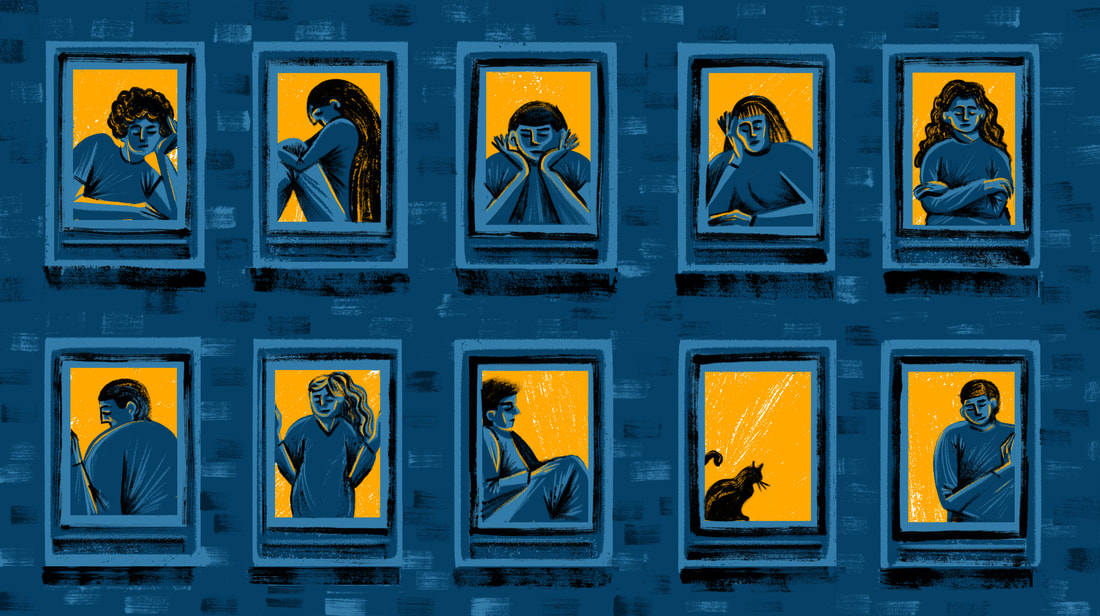26.05.2023
Why Loneliness Could Be The Biggest Threat To Your Health
Loneliness has become more pervasive than before, and it is important to take this issue seriously. In present times the society is moving towards more and more individualistic way of living and there is a lot of isolation that is detrimental for all age groups, especially for children and the elderly. Lonely people are at a higher risk of premature death, dementia, depression, anxiety, heart diseases, stroke, and high blood pressure. Feeling lonely is not an epidemic of a particular racial group or gender; but rather affects all groups of people regardless of income, race, age, religion, or gender. What can we do to curb loneliness in our families, communities, and nation as a whole? First, we must normalize asking for help if we experience feelings of loneliness, isolation, or despair. Reaching out to friends, family, and support groups can do wonders. Next, taking a step back from our busy lives and prioritizing meaningful relationships can allow us to foster social interactions amongst others. Finally, we must objectively evaluate what our relationship is with technology and social media. While common definitions of loneliness describe it as a state of solitude or being alone, loneliness is actually a state of mind. Loneliness causes people to feel empty, alone, and unwanted. People who are lonely often crave human contact, but their state of mind makes it more difficult to form connections with others. Credit: WORLD ECONOMIC FORUM
Poverty deprives people of adequate education, health care and of life's most basic necessities- safe living conditions (including clean air and clean drinking water) and an adequate food supply. The developed (industrialized) countries today account for roughly 20 percent of the world's population but control about 80 percent of the world's wealth.
Poverty and pollution seem to operate in a vicious cycle that, so far, has been hard to break. Even in the developed nations, the gap between the rich and the poor is evident in their respective social and environmental conditions.
Poverty and pollution seem to operate in a vicious cycle that, so far, has been hard to break. Even in the developed nations, the gap between the rich and the poor is evident in their respective social and environmental conditions.
